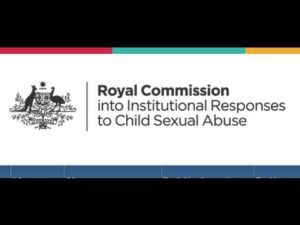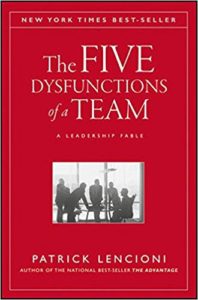 One of the disturbing things about the way church sexual abuse survivors are treated is the variety of these responses. Sometimes survivors encounter empathetic understanding from would-be helpers and those who have official responsibilities in this area, such as Diocesan Safeguarding Advisers. On other occasions survivors are firmly, even cruelly, rejected as though they are a nuisance for the church rather than victims of terrible institutional failure. We do find some good responses. The Church at the highest level appears to understand the devastating effects of sexual abuse. Archbishop Welby has made some statements which appear to get to the heart of the issue. He is recorded as saying ‘The victims are the people we care about most. They really, really matter.’ He also spoke of the importance of addressing ‘the whole culture of silencing…. failure to do so is a form of abuse for the second time, as bad if not worse than the first betrayal’.
One of the disturbing things about the way church sexual abuse survivors are treated is the variety of these responses. Sometimes survivors encounter empathetic understanding from would-be helpers and those who have official responsibilities in this area, such as Diocesan Safeguarding Advisers. On other occasions survivors are firmly, even cruelly, rejected as though they are a nuisance for the church rather than victims of terrible institutional failure. We do find some good responses. The Church at the highest level appears to understand the devastating effects of sexual abuse. Archbishop Welby has made some statements which appear to get to the heart of the issue. He is recorded as saying ‘The victims are the people we care about most. They really, really matter.’ He also spoke of the importance of addressing ‘the whole culture of silencing…. failure to do so is a form of abuse for the second time, as bad if not worse than the first betrayal’.
The choice of the word ‘betrayal’ by the Archbishop to describe the original abuse and the subsequent silencing of victims by church leaders is powerful. Figures of authority in the church, priests, church leaders and even bishops betrayed a victim’s trust and abused him/her. Further damage is caused when these victims fail to be heard by other leaders in the church and this compounds the original abuse. Not only is this rejection cruel and pastorally inept, it also prevents the process of healing from getting under way. Sexual abuse recovery is a process involving hard work on all sides. Dealing with shame and emotional pain can only be done when those involved in the healing process have created acceptance and a safe space in which to explore the original trauma. Perceiving that figures in authority regard you as a nuisance or a threat to the church will create additional stress for the recovering survivor. As Archbishop Welby understood, at least in his quoted words, any experience of being silenced compounds the original experience of abuse.
When Andrew Graystone wrote his pamphlet We Asked For Bread, he carefully recorded the words of nine victims or survivors. Only on occasion did they have positive things to say about the structures of safeguarding and the attempts to help them. I want to assume that there are individuals within the safeguarding systems who do care. Some for reasons of compassion, pastoral sensitivity and conscience do work, as well as they can, with and for survivors. We must try to believe that Archbishop Welby meant what he said when he uttered the words, ‘I regularly meet with survivors of abuse, listen to their stories and (this) reinforces in me my own determination to put their interests first.’
Whatever the words of an Archbishop, the reality on the ground has been a fairly grim one for many survivors. Graystone’s pamphlet records the negative responses, the silence, the avoidance and the sheer cruelty of bishops and others in the hierarchical system of the church who have been confronted with survivors struggling with pain. The overall message from survivors that I have spoken with is that, when given the choice to show compassion and understanding to a survivor or to protect the institution, most of these leaders have chosen the second path.
I have thought long and hard about why any bishop should choose only to protect the institution and, in the process effectively betray a fellow suffering human being. Even if only a single bishop is behaving this way we still need to ask what is going on. As readers of this blog will know, I have long been interested in the phenomenon of narcissistic behaviour. When survivors describe their negative interactions with non-caring bishops and other leaders, I very much sense that their experiences resemble an encounter with an individual exhibiting Narcissistic Personality Disorder (NPD). Those who display this disorder will reveal high levels of self-importance and entitlement with a failure of empathy. Of these qualities, the failure of empathy is the one that causes the greatest pain for survivors. To speak to an individual who is supposed to be the chief pastor and find a complete absence of pastoral caring must be a heavy blow for any survivor.
I have been theorising as to how any bishop could develop the traits that we associate with NPD. Narcissism is a disorder which is commonly encountered in politicians (American presidents!), those involved in the entertainment industry and many members of elite organisations. One form of narcissism is known as Acquired Situational Narcissism (ASN). Classic theories to account for NPD focus on failures in early upbringing. ASN does not require such complicated ideas to explain itself. It theorises that anyone pushed into importance by their status or role can develop the unpleasant traits associated with narcissism. Something similar thing happens to some people who acquire enormous wealth.
In my thinking, I am beginning to glimpse a further sub-division of narcissism. It has my title of Institutional Narcissism. Individuals in a hierarchical institution who achieve status by climbing the ladder of promotion will have a vested interest in preserving the privileges and importance of that entity. Bishops who are officials in the Church of England will naturally have a strong emotional stake in the welfare and reputation of that institution. This will be far more than for a lay member of the same church. Just as politicians and pop stars sometimes exhibit narcissistic traits in and through their importance, so this may be true of bishops. In the church importance is gained, not from public opinion, but simply in view of the hierarchically acquired status. The institution itself has given them their importance. My insight is that some will do a great deal to preserve that status, including showing narcissistic traits to defend themselves and their organisation against anyone, including survivors, who are seen as a threat to their position.
The reported bullying, silencing and even outright dishonesty by some bishops and others towards survivors are not the forms of behaviour that we would associate with a follower of Jesus. When a bishop exhibits such behaviour, we are forced to search for some explanation. I am offering here the hypothesis of what I describe as Institutional Narcissism. Promotion, importance and status have created in certain individuals a distancing from the original impulse or vocation to serve and love. When a church leader abandons love for a defensive narcissism, an evil is created in the heart of the church. This, unless checked and challenged, will gradually destroy the Church’s integrity and its ability to speak to and serve our nation.








